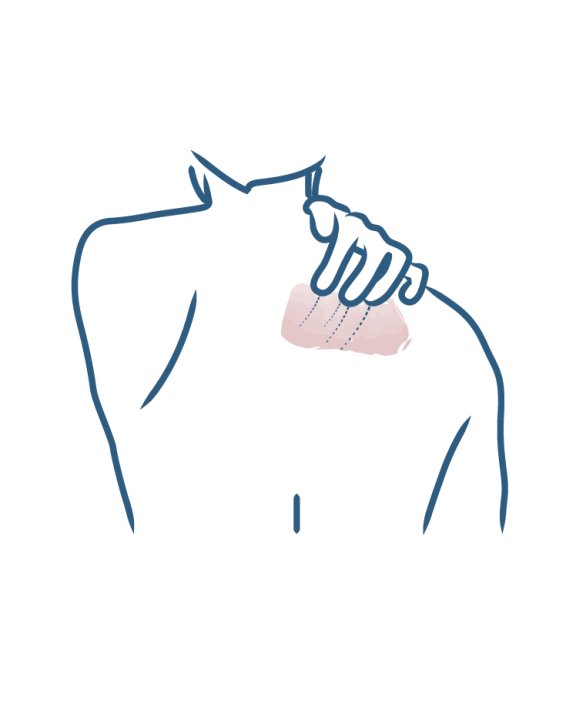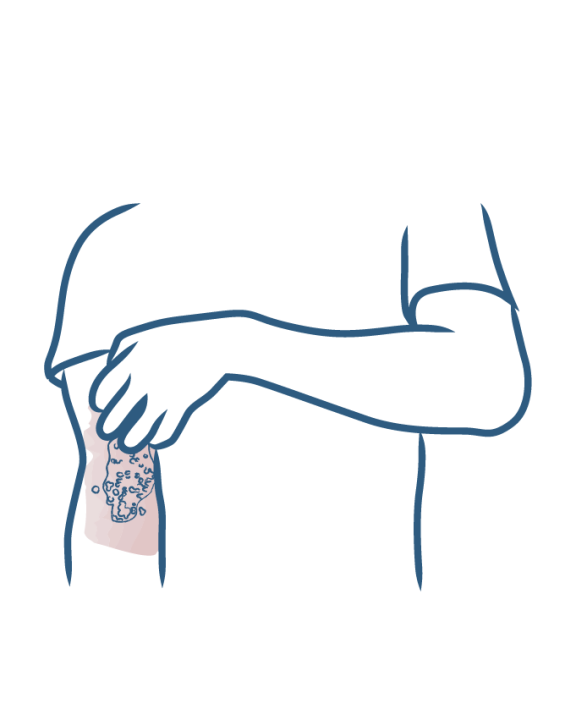What you should know about eczema
- SUMMARY
- Eczema
Atopic eczema
- Living with eczema day to day
- What soap should be used for eczema?
- Eczema cream, ointment: what should you use?
- Eczema: can it be cured?
- Eczema: how to treat itching
- Swimming pool, swimming when you have eczema?
- Which detergent should eczema patients use?
- Eczema: how can flare-ups be avoided?
- What are the habits to avoid when you have eczema?
- Eczema: What daily reflexes should you adopt?
- Eczema: what foods should you eat?
- What causes eczema?
- Clothing contact eczema
- Contact eczema due to cosmetics
- Contact eczema due to nickel and chromium
- Stress-induced eczema
- Hereditary eczema
- Perspiration-induced eczema
- Contact eczema due to cleaning products
- Allergy-induced eczema
- Contact eczema due to medication and topical treatments
- Body eczema: hands, feet, arms, back, face, etc.
- Arm eczema (elbows, armpits, forearms)
- Eczema of the eyelids, eyes or palpebral eczema
- Foot eczema
- Eczema around the mouth
- Leg eczema or varicose eczema
- Eczema in the ears
- Hand and finger eczema (chronic hand eczema)
- Facial eczema
- Eczema on the stomach and belly button
- Eczema on the neck and nape of the neck
- Scalp eczema
- Eczema on the back
- What is infantile eczema?
- What soap should be used for babies with eczema?
- Eczema in babies and children: the areas most often affected
- Eczema in babies: what habits should you adopt?
- Cortisone cream to relieve eczema?
- How should you treat baby’s and infant’s eczema?
- When should you consult a physician about your baby's eczema?

Atopic eczema
Atopic eczema, also known as constitutional eczema or atopic dermatitis, is the most common form of eczema. Atopic eczema essentially affects young children, sometimes during their earliest months, and in high proportions: atopic eczema is the number one reason for consulting a pediatric dermatologist and affects 1 in 5 children.
Atopic eczema and topy
Atopic eczema is the result of a double anomaly. On the one hand, atopic skin has several flaws which prevent it from fulfilling its role as a protective barrier. It instead acts like a sieve, allowing too much water to escape and enabling allergens and irritants to penetrate the skin too easily. On the other hand, the immune system malfunctions, triggering excessive reactions to allergens and the appearance of eczema plaques.
The concept of atopic eczema is strongly tied to that of atopy. Atopy is the hereditary genetic predisposition to developing excessive reactions to common allergens in the environment. It can appear at different periods in life and in different forms: food allergy and eczema during early childhood, childhood asthma, rhinitis (hay fever) and conjunctivitis during adolescence and adulthood.
The factors behind flare-ups
The factors behind flare-ups are numerous but they vary from one person to another and from one flare-up to another: pollen, animal fur, dust mites, wool, chlorinated pool water, perfumes, stress, cold, wind, perspiration, etc. The role of certain elements of the skin flora (all the "microbes", essentially bacteria and viruses, living on the skin surface) in triggering these flare-ups is increasingly highlighted.
Atopic eczoma over time
The development of the disease is unpredictable. Generally, atopic eczema disappears before adolescence, but it could continue, appear or even reappear during adulthood. In the same way, it is impossible to predict whether other signs of atopy will develop with age.
Atopic eczema is a disease that affects the whole family due to its often hereditary nature and its impact on daily life.
More information
- Discover Is eczema contagious ?
What you should know about eczema
Is eczema contagious ?
- Discover Contact Eczema: what do you need to know?
What you should know about eczema
Contact Eczema: what do you need to know?
- Discover Eczema in adults, atopic dermatitis in adults
What you should know about eczema
Eczema in adults, atopic dermatitis in adults
- Discover What is pregnancy eczema?
What you should know about eczema
What is pregnancy eczema?
Our care routines
Skin prone to atopic eczema, contact eczema, chronic eczema and/or, eyelid eczema
Dermatological expertise
To better understand your skin and hair, discover our exclusive content and innovative care products designed to improve your quality of life..





